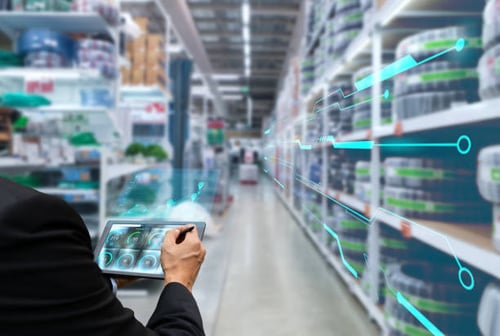
Forecast with Precision: AI-Driven Demand-Driven Replenishment in Food and Beverage Supply Chains
In Food and Beverage (F&B) manufacturing, agility and precision in supply chain management are not just competitive advantages—they are imperatives. Rapid shifts in consumer demand, perishability of raw materials, and tight production windows require Supply Chain Managers to move beyond traditional forecasting methods.
Enter AI-driven forecasting—a transformative solution that enables demand-driven replenishment, reducing waste, optimizing inventory, and aligning procurement with real-time market signals. When combined with advanced planning and scheduling systems like PlanetTogether, and integrated seamlessly with ERP platforms such as SAP, Oracle, Microsoft Dynamics, Kinaxis, or Aveva, the result is a supply chain that is not just reactive, but intelligently proactive.
This blog explores how Supply Chain Managers in F&B manufacturing can implement and benefit from AI-enabled forecasting and replenishment strategies.
The Limitations of Traditional Forecasting
Historically, F&B manufacturers have relied on historical data trends and seasonal averages for planning. While this worked in relatively stable environments, the past few years have shown that demand volatility is the new norm. Pandemic aftershocks, climate variability, inflationary pressures, and evolving consumer preferences have made rigid forecasting models obsolete.
Some of the major drawbacks include:
Lag in response time to real-time demand changes
Overstocking or understocking due to inaccurate projections
Manual intervention and adjustments across disconnected systems
Limited cross-functional visibility between procurement, production, and logistics
To address these challenges, organizations are turning toward AI-driven approaches that continuously learn, adapt, and improve forecasting accuracy.
What is AI-Driven Forecasting?
AI-driven forecasting uses machine learning algorithms, predictive analytics, and real-time data ingestion to anticipate demand patterns. Unlike static models, AI evolves over time, refining predictions by analyzing both internal data (e.g., sales, promotions, production rates) and external signals (e.g., weather, market trends, social media sentiment, competitor pricing).
Key capabilities include:
Dynamic demand sensing across multiple SKUs, regions, and sales channels
Real-time adjustment to inventory and replenishment plans
Anomaly detection to flag abnormal demand spikes or drops
Scenario modeling to assess the impact of various market conditions
Demand-Driven Replenishment in Action
In a demand-driven replenishment strategy, the replenishment process responds in near real-time to actual customer demand signals. Instead of pushing products based on forecasts alone, inventory is pulled dynamically based on consumption patterns and sales velocity.
Benefits for F&B Manufacturing:
Reduced inventory holding costs by eliminating overstocked perishables
Improved fill rates and on-time deliveries
Decreased waste from expired or obsolete goods
Better alignment between supply, production, and sales operations
Greater agility to respond to market trends, promotions, or disruptions

How PlanetTogether APS Enables AI-Driven Forecasting
PlanetTogether’s Advanced Planning and Scheduling (APS) platform plays a pivotal role in transforming AI-generated demand forecasts into actionable production and replenishment plans. By integrating seamlessly with ERP systems like SAP, Oracle, Microsoft Dynamics, Kinaxis, or Aveva, PlanetTogether enables the execution of precise, synchronized supply chain strategies.
Key Integration Benefits:
Real-time visibility into production capacity, inventory levels, and material availability
Automatic synchronization of demand forecasts with production schedules
Scenario planning to simulate different replenishment strategies
Optimization algorithms that prioritize freshness, delivery time, and cost-efficiency
Cross-departmental coordination by linking supply chain with procurement, sales, and operations
Imagine a scenario where a spike in demand for dairy-based beverages is detected from retail sales data. The AI forecasting model adjusts the demand signal and pushes the update to PlanetTogether. The system evaluates production constraints and inventory availability, then recalibrates the production plan and triggers a replenishment order—all while updating SAP or Oracle for financial and procurement alignment.
For Supply Chain Managers in the Food and Beverage industry, AI-driven forecasting is more than a technological upgrade—it’s a competitive necessity. When paired with PlanetTogether APS and integrated into robust ERP systems like SAP, Oracle, Microsoft, Kinaxis, or Aveva, it becomes a powerful engine for responsive, lean, and resilient supply chains.
By moving toward demand-driven replenishment powered by real-time data and intelligent planning, F&B manufacturers can reduce waste, improve service levels, and gain the agility needed to thrive in an unpredictable market.
Are you ready to take your manufacturing operations to the next level? Contact us today to learn more about how PlanetTogether can help you achieve your goals and drive success in your industry.